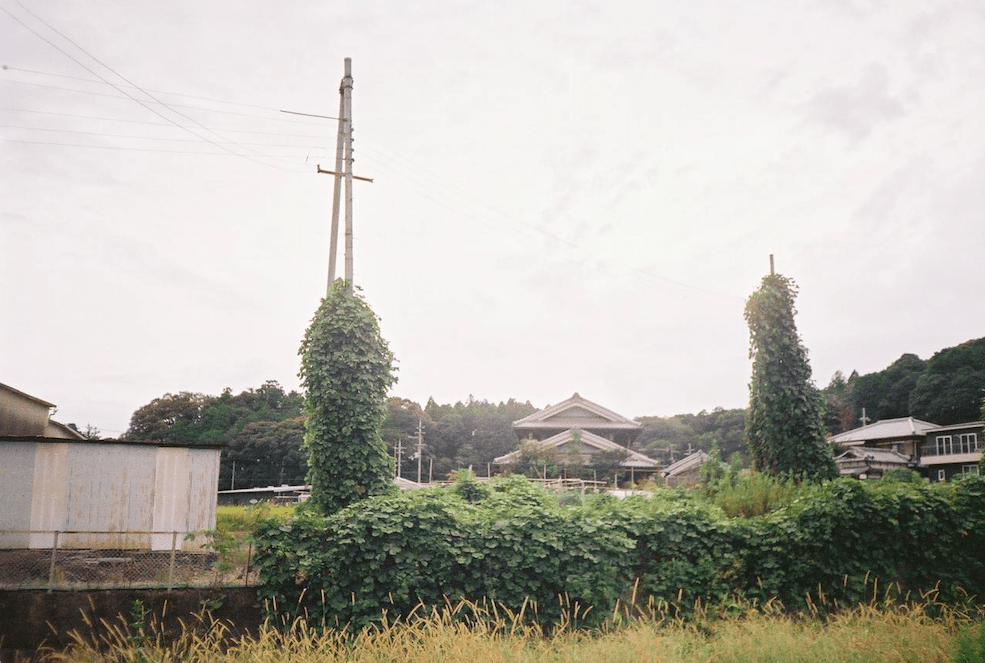by CC Monett (Intern #183)
Instagram: @cc__emx
Interning at Obubu Tea Farms this autumn has been a blend of physical labor, knowledge-sharing, and deepening connections to the land and plants that make this place so special. One of the projects I’ve taken on here is crafting a guide to gardening and farming, specifically aimed at the flora and fauna of Wazuka, and practices that keep our tea fields thriving.
I came into this project with my background in anthropology, environmental studies, and a lot of hands-on experience in horticulture. This manual felt like a chance to combine those skills in a way that could serve as a lasting resource on the farm and for future interns, as well as an opportunity for me to spend more time outside.

While weeds come and go, the gardens remain, and working in them here at Obubu has been deeply fulfilling. Caring for garden spaces is my current passion, and I hope future green-thumbed interns can embrace and build on this opportunity as well.
1. Observing and Learning
Before putting pen to paper, I spent time simply observing and listening. At Obubu, tea farming is intertwined with the rhythms of the seasons and local traditions that can’t be learned overnight. Each day, I learned something new from managers and other team members—from Obubu’s rich tea field history to witnessing war with Japanese hornets or Suzumebachi スズメバチ.

I also took note of the plants and weeds we often deal with and started researching some of their characteristics and uses. Japanese Poison Hemlock or Doku-ninjin 毒人参 for example, which I included as a section in the guide, requires specific handling and knowledge that’s crucial for newcomers to the farm, due to its poisonous nature. Kudzu or Kuzu 葛 is another weed that many people are familiar with. It was interesting to note how prevalent it can be here in Wazuka, as well as how it is interpreted and used in Japan—often turned into kuzu starch. Additionally, since my intern period was autumn, we were graced by the beautiful Red Spider Lily, or Higanbana 彼岸花, whose toxicity I proved to be true by bearing bright red arms after weeding (Oops!).

2. Practicality and Accessibility
In creating this manual, my goal was not only to record these techniques but to present them in a way that’s easy to follow. Many volunteers and interns are here for just a few months, so I aimed to make it a straightforward resource they could turn to swiftly. Each section includes a mix of information pertaining to Obubu, general gardening tips, the Wazuka environment, and notes about Japanese flora and fauna. The guide mostly focuses on plants, animals, and information that I encountered first-hand here, and suspect others coming to Obubu will grow to learn about as well.
3. The Long-Term Vision for Obubu
One of the things I’ve come to appreciate at Obubu is their commitment to continued education and sharing knowledge. Every intern and volunteer brings a new perspective, and with this manual, I hope to contribute something lasting that can keep that spirit going. It’s not just a guide for some of “how we farm” here, but a reflection of “why” learning about our environments matters here, as well as focused care about the Obubu grounds themselves. And in capturing that spirit, I hope that it can inspire some to venture out into the Wazuka wilderness, to garden at and care for Obubu, and to continue capturing knowledge to share at Obubu and among friends and staff.

Reflections on the Process
Writing this manual was not just about creating a gardening guide—it was about learning how to interpret the natural world through the lens of Obubu, Wazuka, and growing tea. Obubu has given me so much to work with, from the tools of tea farming (scythes are sharp!) to an ethos of workmanship that has deepened my own approach to horticulture. All of the best times I had at Obubu were spent outside, in good company, and surrounded by the natural beauty of Wazuka. Below you can find the link to this guide.

Enjoy Japan, Enjoy farming, またね,
CC
Cultivating Knowledge: An Intern’s Guide to Obubu’s Organic Materials

